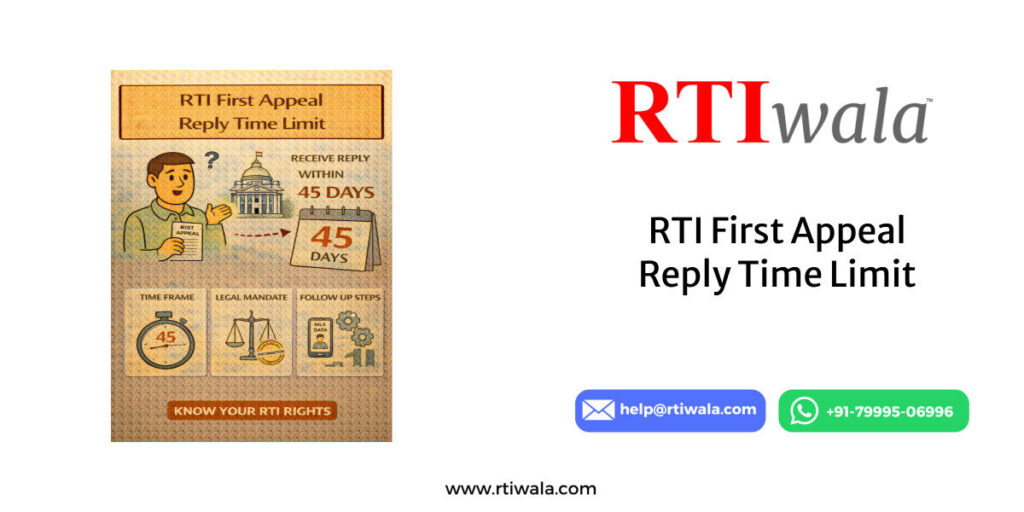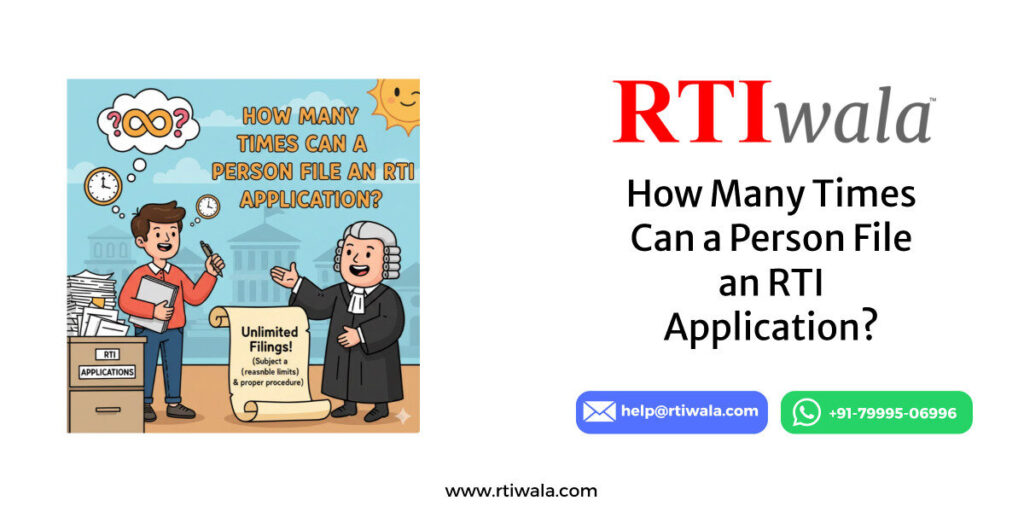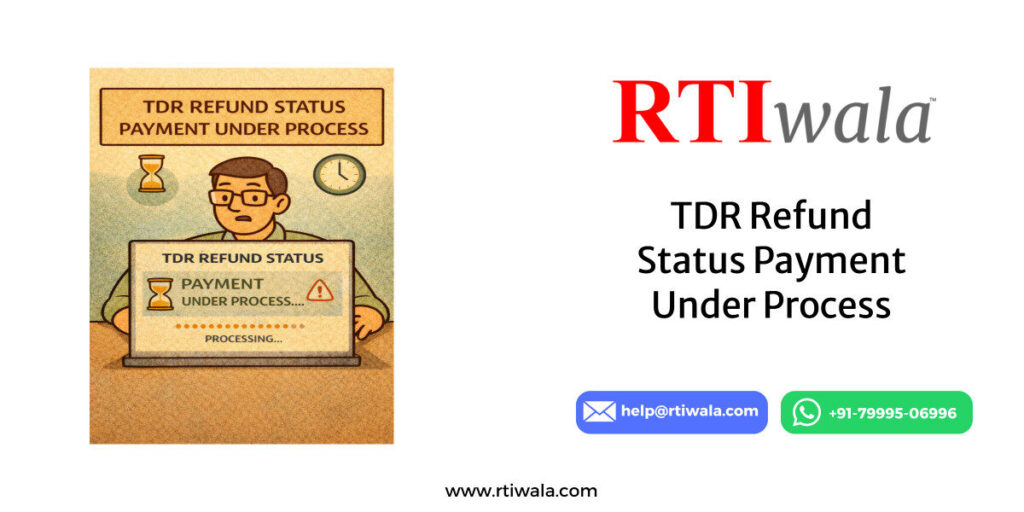Introduction
Buying a property is one of the most significant investments in a person’s life. However, real estate buyers often face issues such as project delays, irregularities in promised amenities, or a lack of compliance with government approvals. The Right to Information (RTI) Act empowers homebuyers to seek transparency and accountability from developers and government authorities. This guide provides a step-by-step process to file an RTI online for real estate project delays or irregularities and ensures you have the necessary tools to protect your interests.
Common Issues in Real Estate Projects
- Project Delays
- Construction not completed within the promised timeline.
- Deviations from Approved Plans
- Builders deviating from sanctioned plans without informing buyers.
- Lack of Necessary Approvals
- Absence of environment clearance, occupancy certificates, or RERA registration.
- Misleading Advertisements
- Promises of amenities or configurations that are not delivered.
- Hidden Charges
- Unexpected costs added to the total price of the property.
- Poor Quality Construction
- Structural or finishing issues in the delivered project.
Why File an RTI for Real Estate Issues?
The RTI Act, 2005, allows you to:
- Obtain information about project approvals and compliance.
- Verify the status of permissions like occupancy and completion certificates.
- Expose irregularities or malpractices by developers.
- Hold authorities accountable for delays in regulatory processes.
Steps to File an RTI Online for Real Estate Issues
Step 1: Identify the Concerned Authority
- Determine which government department has jurisdiction over the project. Common authorities include:
- Urban Development Authority (e.g., DDA, BDA).
- Municipal Corporations for local approvals.
- State RERA Authority for regulatory compliance.
- Ministry of Housing and Urban Affairs for central government projects.
Step 2: Draft a Clear RTI Application
- Frame your questions clearly and concisely. Examples include:
- “What is the current status of occupancy certificate issuance for [Project Name]?”
- “Provide details of approvals granted to [Developer Name] for [Project Name].”
- “What is the penalty imposed on the developer for project delays under RERA regulations?”
Step 3: Submit the RTI Online
- Visit the official RTI Online Portal: rtionline.gov.in.
- Select the concerned authority and fill in the required details.
- Attach supporting documents (if any).
Step 4: Pay the RTI Fee
- Pay the nominal fee of ₹10 using online payment options like debit/credit cards, UPI, or net banking.
- Fee exemptions are available for individuals below the poverty line (BPL).
Step 5: Track Your RTI Application
- After submission, you will receive a unique registration number.
- Use this number to track the status of your RTI application on the portal.
Information You Can Obtain Through RTI
- Approval and Compliance Documents
- Building plans, environmental clearances, and RERA registration details.
- Status of Occupancy and Completion Certificates
- Confirm whether the project has received mandatory certifications.
- Details of Penalties or Notices
- Check if the developer has been penalized for delays or violations.
- Progress Reports
- Request updates on project timelines and milestones.
- Financial Disclosures
- Verify the usage of funds collected from buyers.
Tips for Filing an Effective RTI
- Be Specific
- Avoid vague questions. Clearly mention the project name, location, and developer.
- Attach Supporting Documents
- Include copies of your agreement, payment receipts, or previous communications if needed.
- Request for Copies
- Explicitly ask for certified copies of documents for authenticity.
- Follow Up if Necessary
- If the response is unsatisfactory, file a first appeal with the appellate authority.
Challenges in Using RTI for Real Estate Issues
- Unclear Jurisdictions
- Identifying the correct authority can be confusing for large projects.
- Delayed Responses
- Authorities may take longer than the stipulated 30 days to respond.
- Incomplete Information
- Responses may lack critical details, requiring follow-up appeals.
- Resistance from Developers
- Developers may resist sharing information, citing confidentiality.
How RTIwala Can Help
If you face challenges in filing or following up on RTI applications, RTIwala offers expert assistance to simplify the process:
- File RTI Online: Ensure your application is submitted to the correct authority with all necessary details.
- Anonymous RTI: Address sensitive issues without revealing your identity.
- Custom Drafting: Professionally crafted RTI applications tailored to your specific concerns.
- Follow-Up Support: Ensure timely and satisfactory responses from authorities.
RTIwala Service Promotion
Resolve real estate issues effectively with RTIwala trusted services:
- Expert Consultation: Get advice on filing RTIs for real estate concerns.
- Online RTI: Submit RTI applications seamlessly with our guidance.
- Anonymous RTI: Maintain privacy while addressing project delays.
- Custom Drafting: Tailored RTI applications for impactful results.
- Products: Explore additional services for resolving real estate disputes.






















































